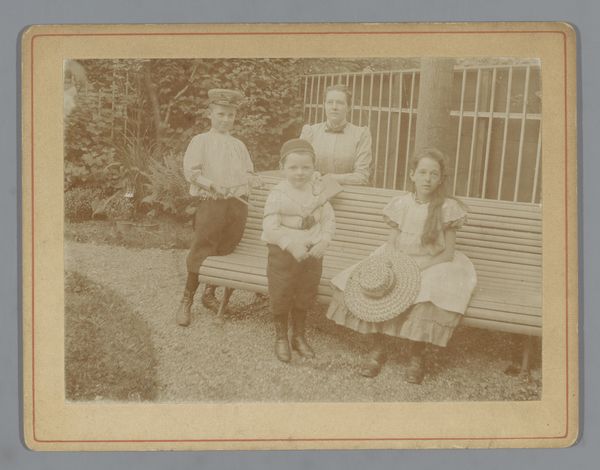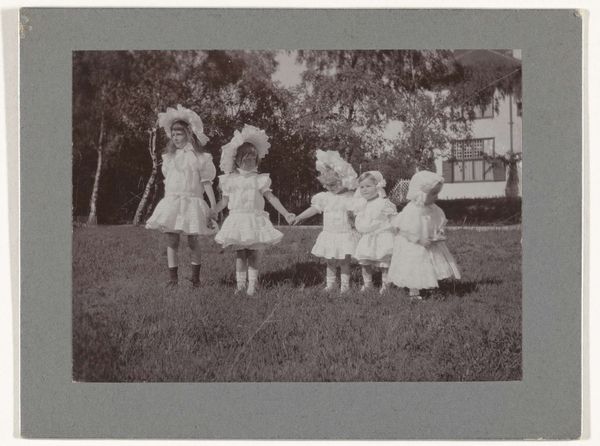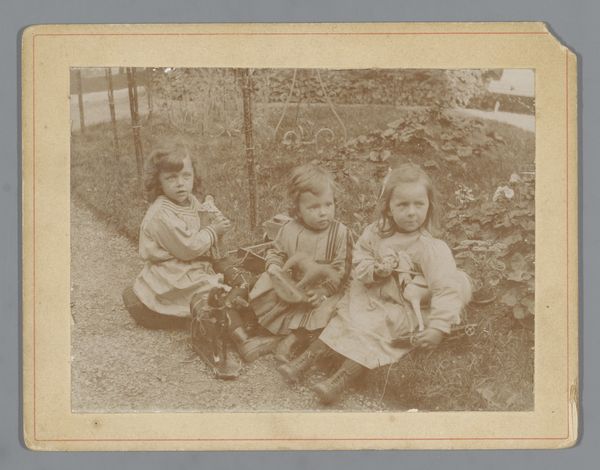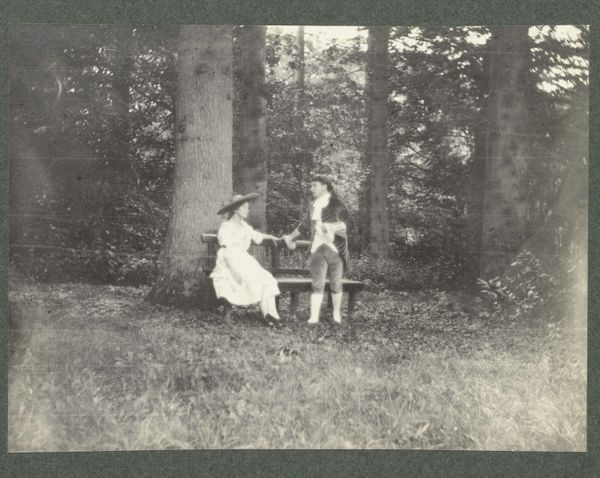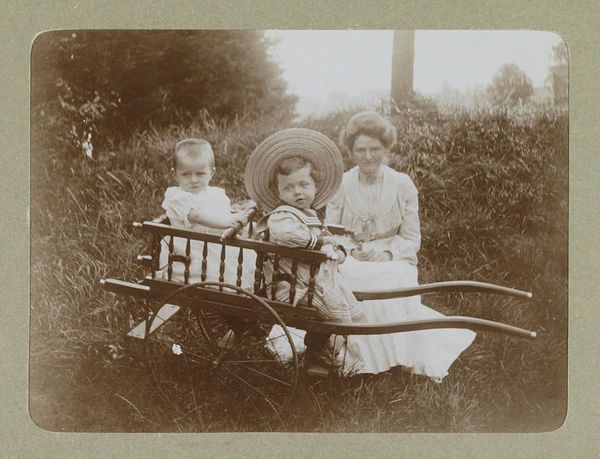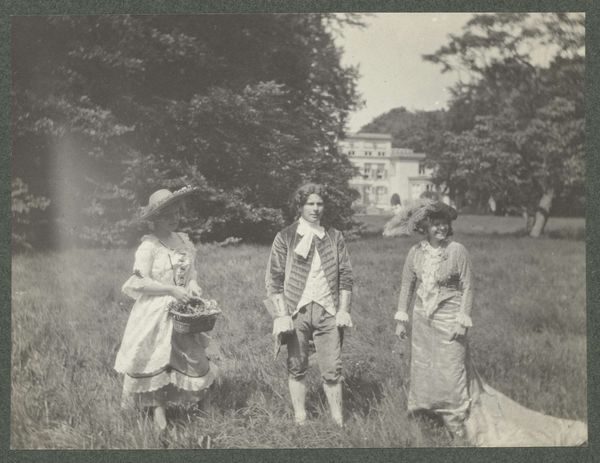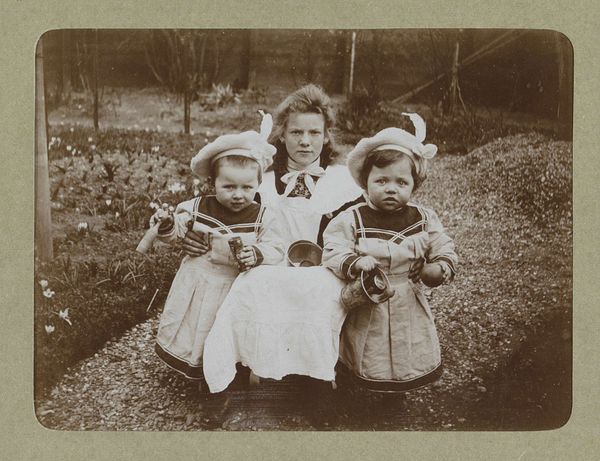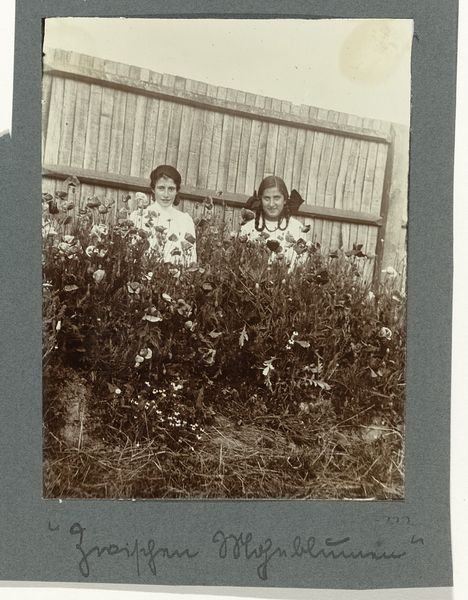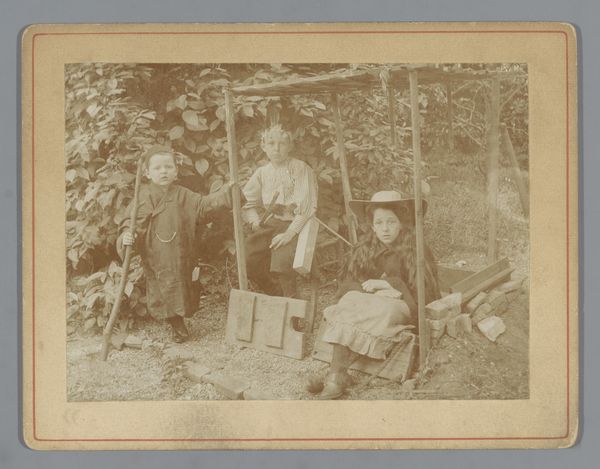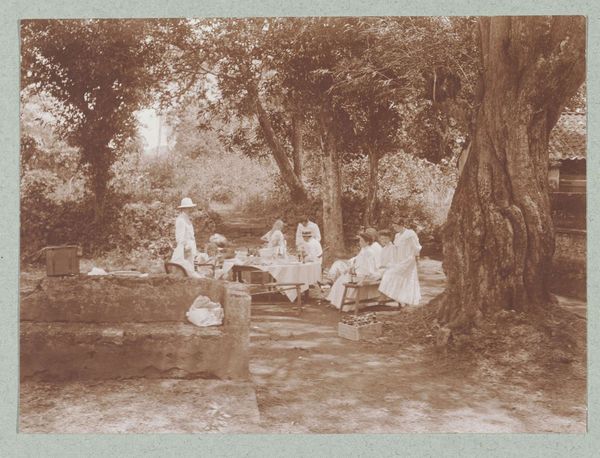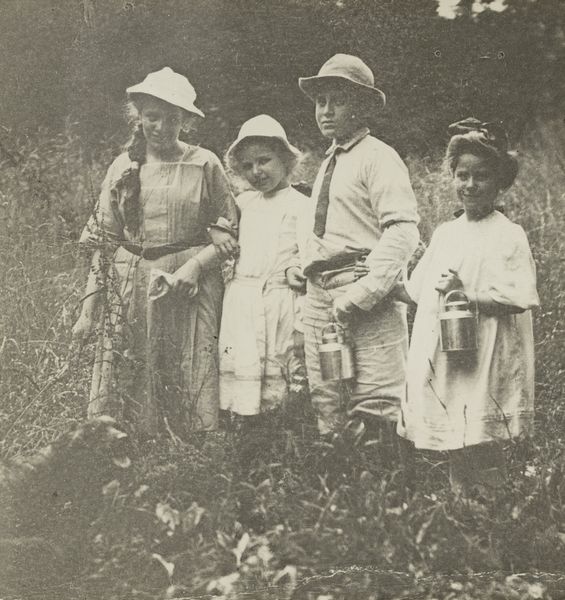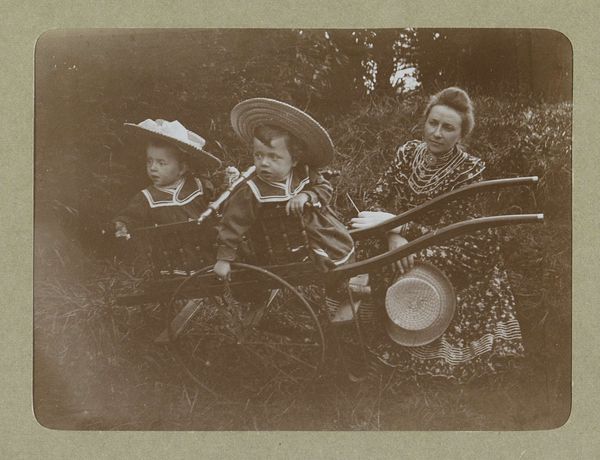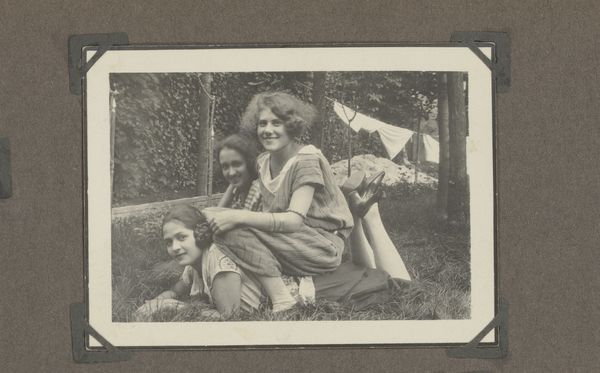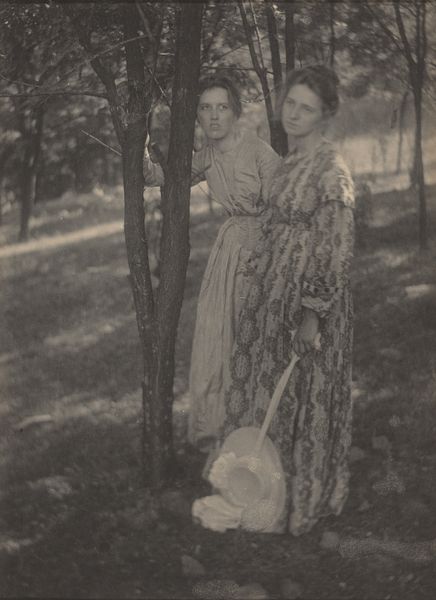
Drie kinderen van de fotograaf (Renée, Irène en Sacha) met hun 'undernurse' Daisy in een bos 1910
henrypauwvanwieldrecht
Rijksmuseum
photography
portrait
print photography
pictorialism
landscape
photography
Dimensions: height 118 mm, width 165 mm, height 143 mm, width 194 mm
Copyright: Rijks Museum: Open Domain
Editor: This lovely photograph, taken around 1910 by Henry Pauw van Wieldrecht, is called "Three children of the photographer (Renée, Irène and Sacha) with their 'undernurse' Daisy in a forest." The textures of the dresses and the hammock are striking. I'm curious, what resonates with you when you look at it? Curator: It's more than just a photograph, isn’t it? It’s like a faded dream, a window into a different world. Pictorialism was about creating an artistic image, not just documenting reality. The soft focus lends the photograph a dreamlike, almost ethereal quality. Did you notice how they're arranged, the children and their nurse? It’s staged, theatrical, like a tableau vivant. Editor: Definitely, I was thinking about that... especially how close they are. But it doesn't quite have a formal feeling, not quite... Curator: Indeed. And I suspect that blurring, that lack of precise definition, might actually hint at intimacy rather than formality. It speaks volumes. What I wonder about most is their future - or ours. These families often felt invincible in their moment, the very air around them so prosperous and promising. Yet, here we are now, peering back at them from a future they never saw coming. Tell me, what's your read on Daisy’s face? Does she feel part of this little world? Editor: That's a beautiful way to frame it. To be honest, I hadn’t even focused on Daisy specifically, but now that you mention it, she does seem slightly apart from the others, which changes the mood significantly. Curator: It’s like a fleeting memory caught on film, both beautiful and poignant. It's got me wondering who took care of them during the actual war, when all their family riches would disappear. Editor: Absolutely. This makes me think differently about the power of photography, especially portraiture. It's a portal and an interpretation.
Comments
No comments
Be the first to comment and join the conversation on the ultimate creative platform.
